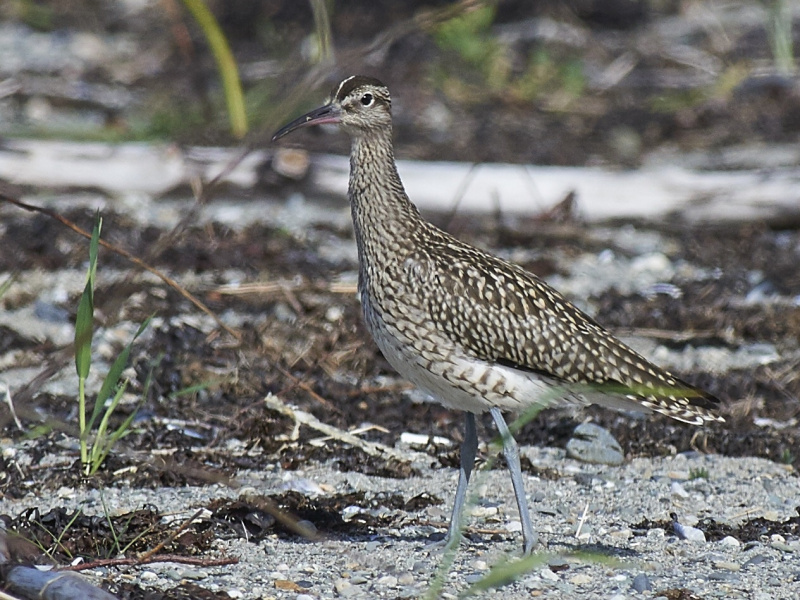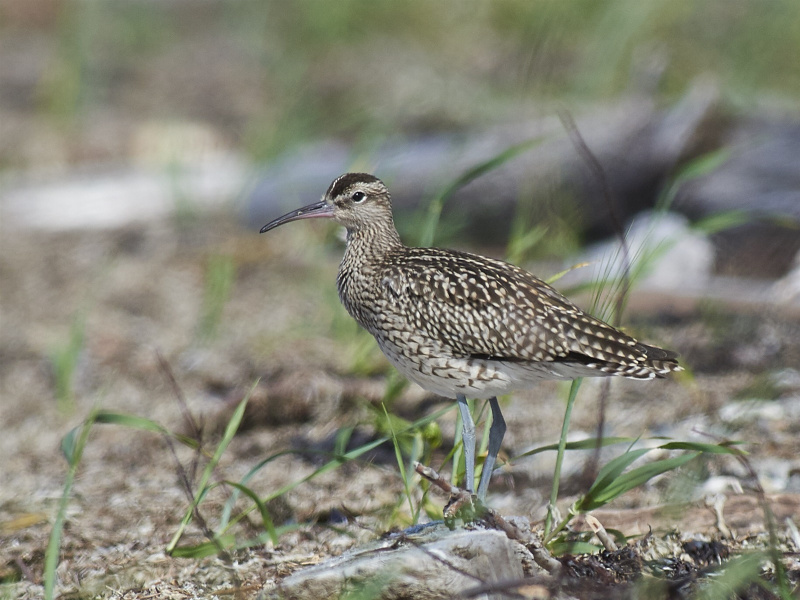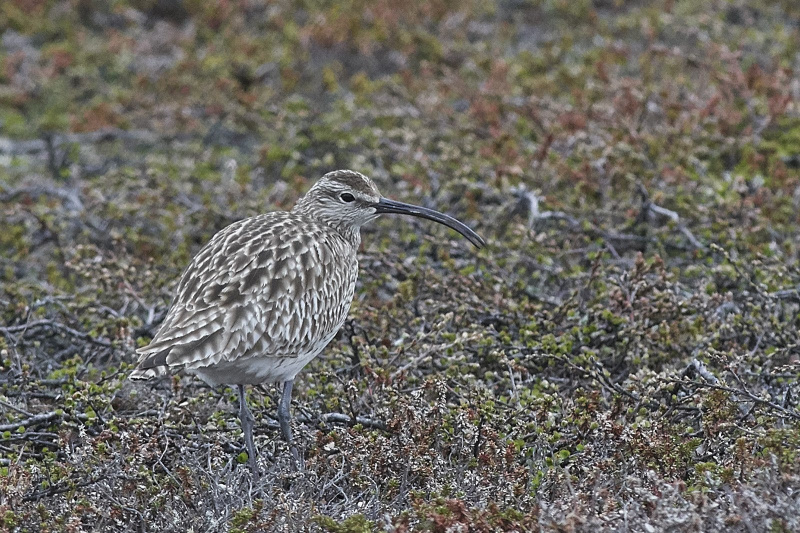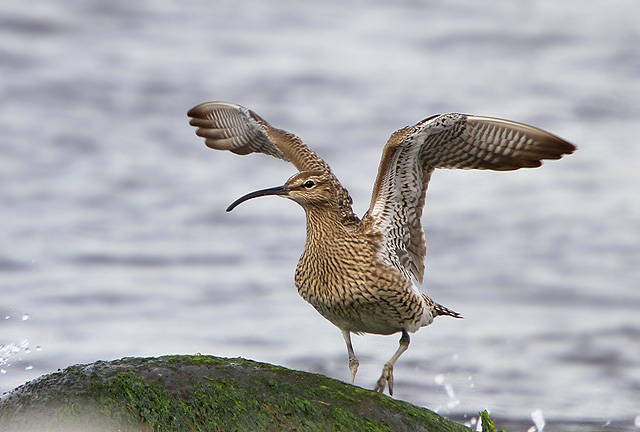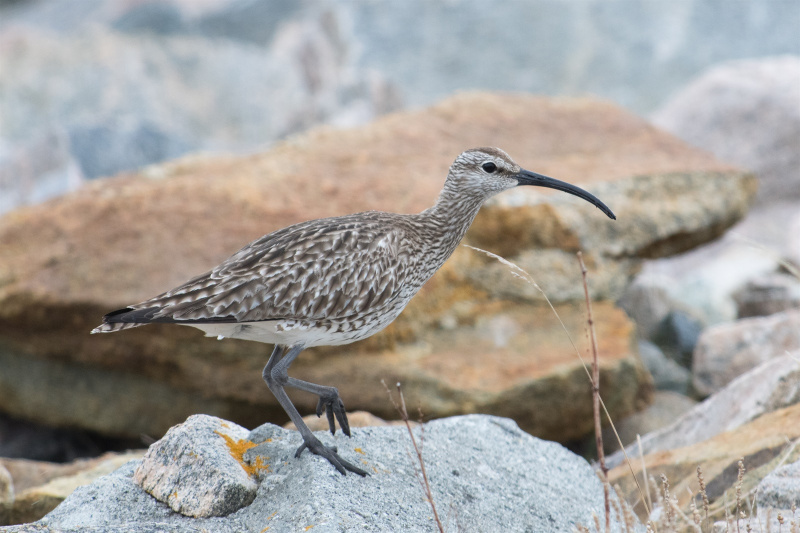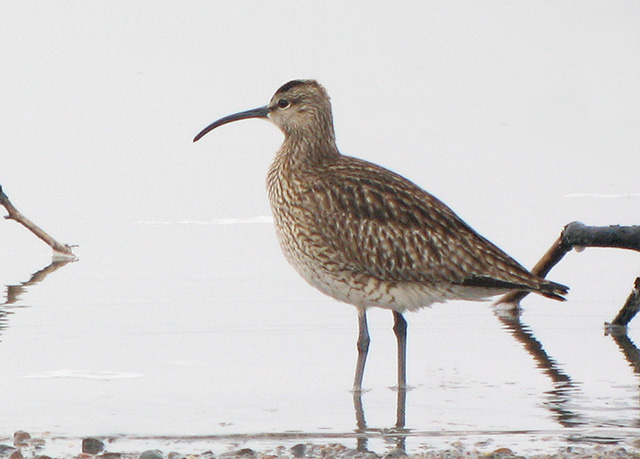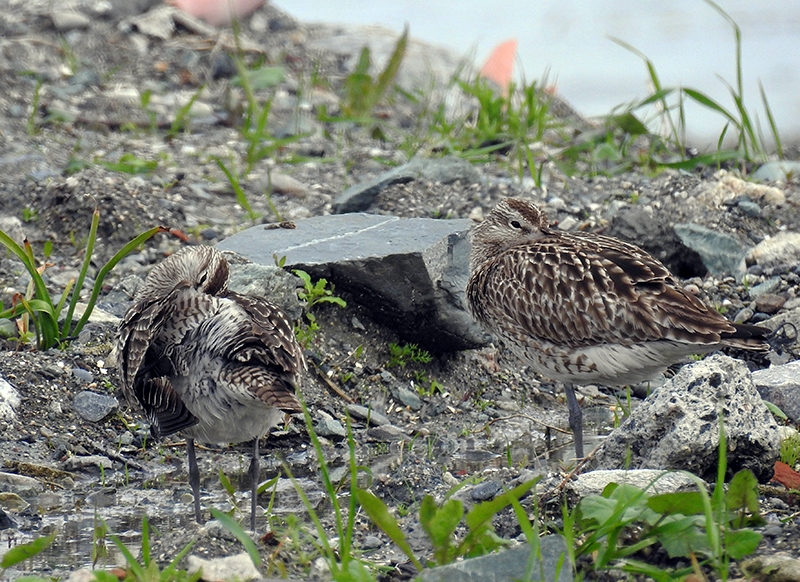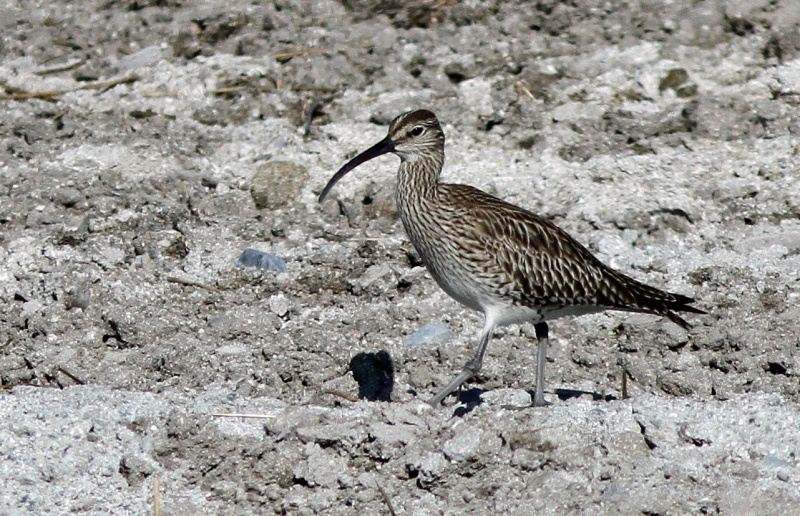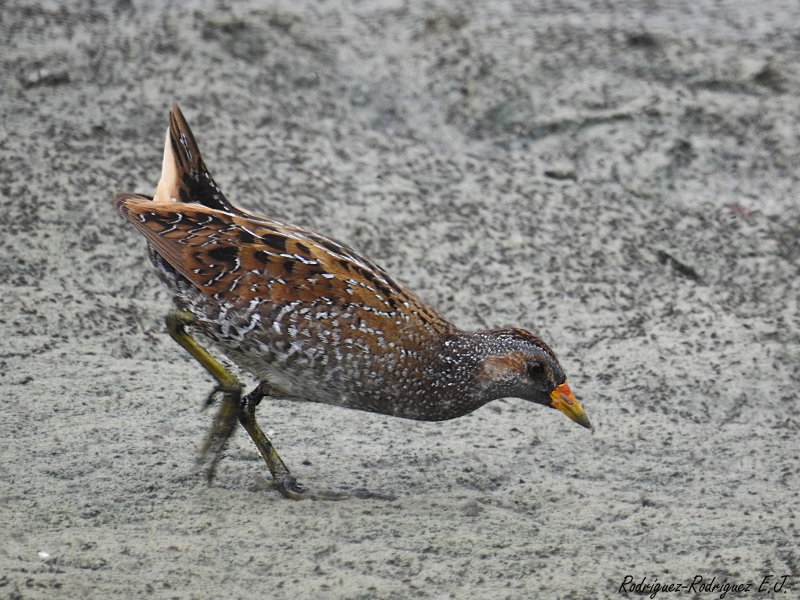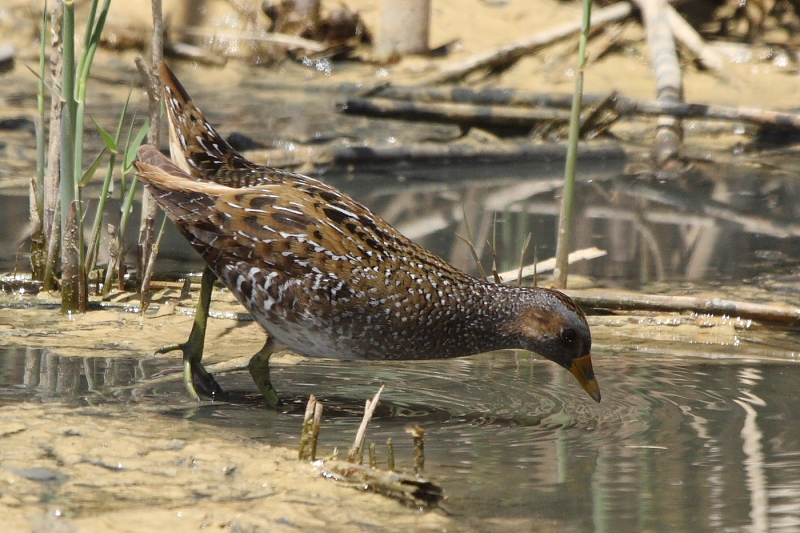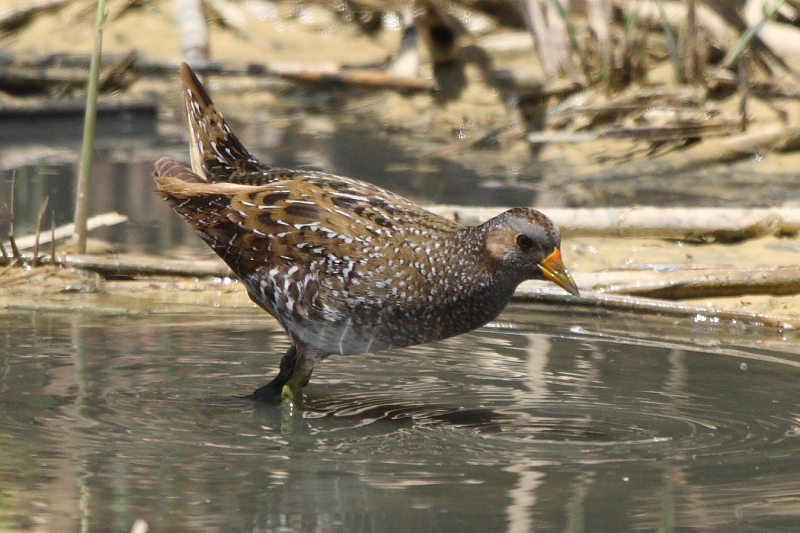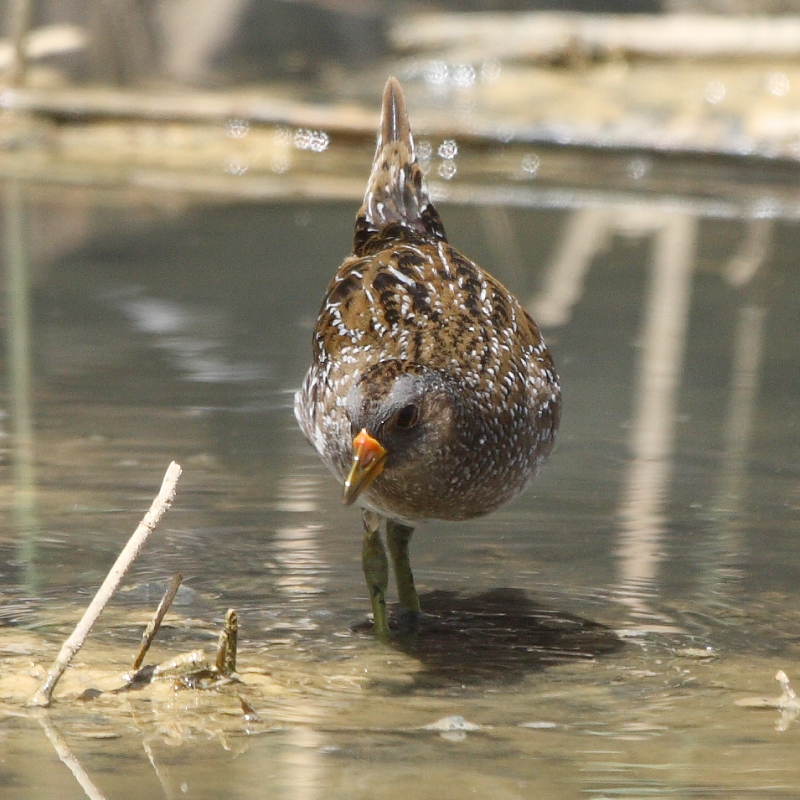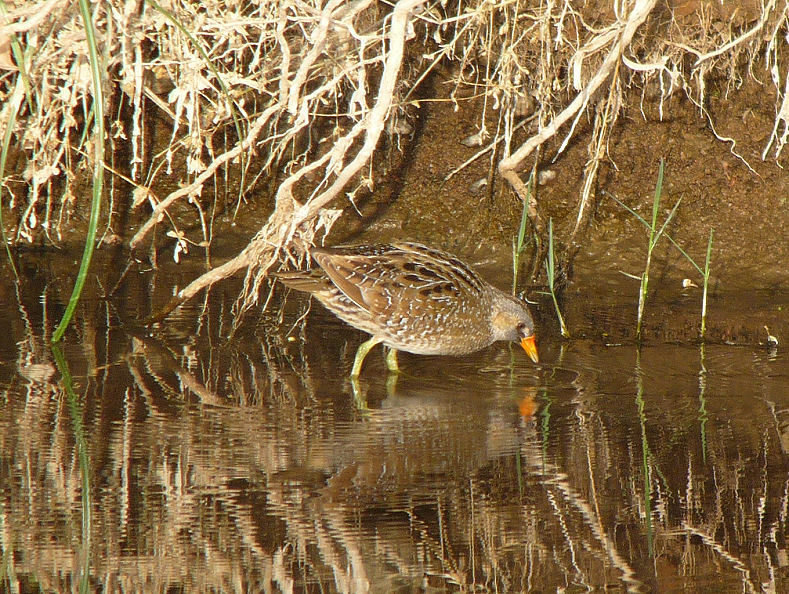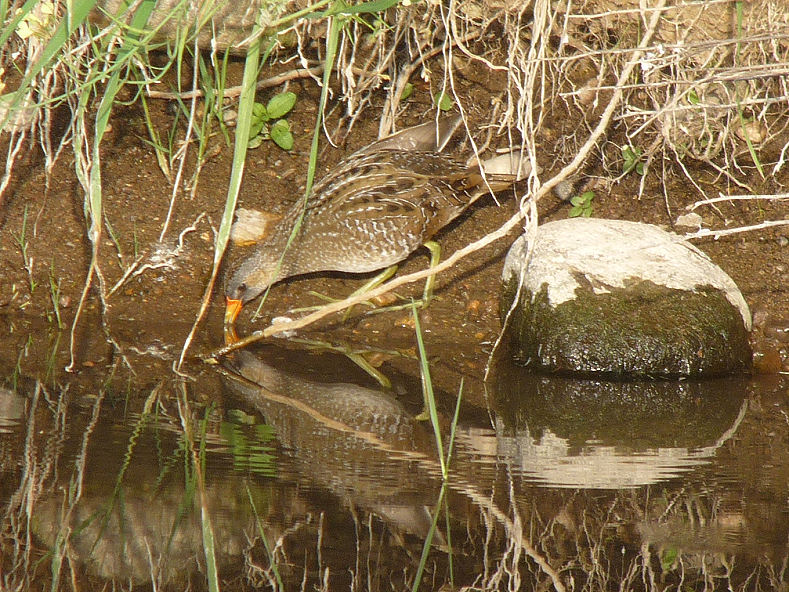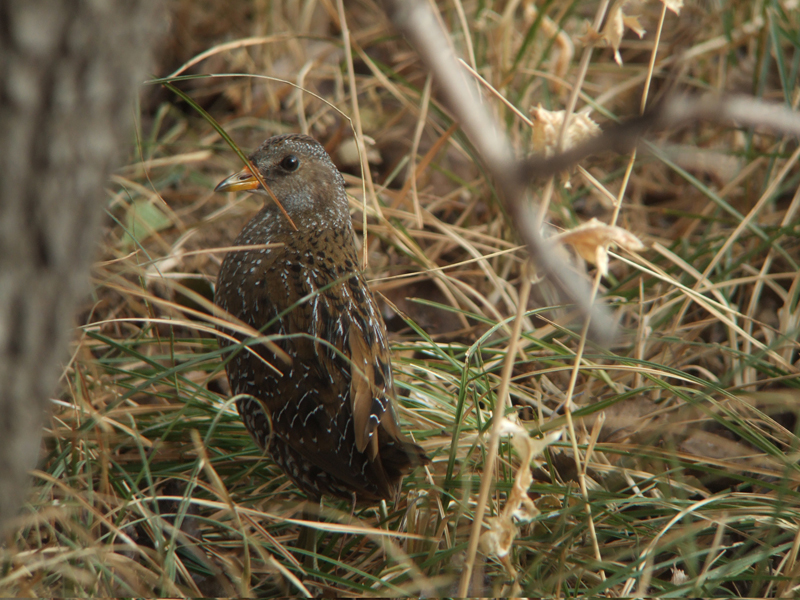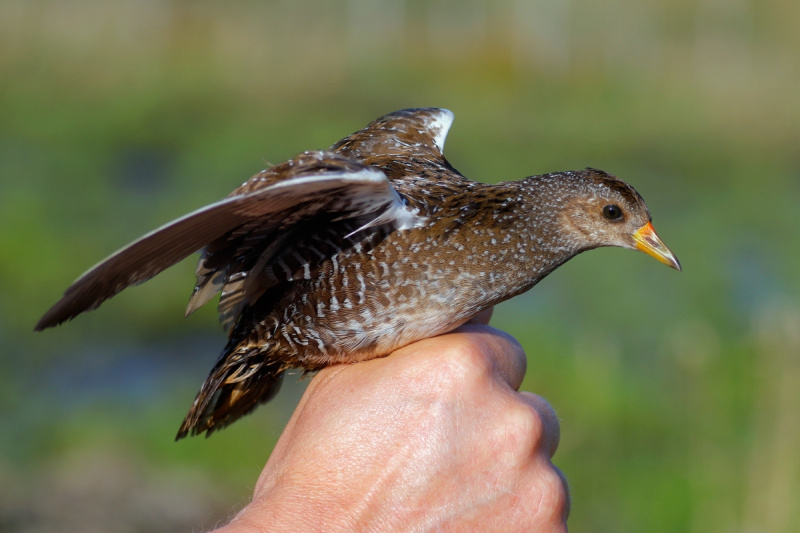Whimbrel (Numenius phaeopus)
Spotted Crake (Porzana porzana)
Notably smaller than Curlew. Bill is shorter and curves more closer to the tip. Markings on head much more prominent than in Curlew, with double dark lateral crown-stripes (light stripe on top of crown) and dark eye-stripe. Note that young Curlews have noticeably shorter bill than adults! Gives an overall darker impression than Curlew, especially underwing and flanks.
Sound:Song starts similar to Curlew with long wailing notes "kluuueee", which then accelerates to a continuous, vibrating single note. Lacks the cyclic phrase ending of Curlew.
Song:
Distribution:
Wikipedia: map (se also Xeno-canto below)
Ecology:Birdlife ecology
Links:
Observation.org Latest observations
Image search Flickr NB! May give other species
CCSmall, secretive bird, usually only heard and not seen. Buff under tail-coverts and zigzag-patterned wings are diagnostic, and separates it from all other small rails in the region except American migrant Sora. Stocky build, with speckled underparts and short yellow bill with red spot at upper base.
Sound:Loud and far reaching song uttered with relentless stamina for hours on end. A monosyllabic, resonant and drawn-out "huiiit". The pith rises towards the emphasized end of the call, which is repeated about once a second. Often compared to the dripping of water. Mostly heard at night, and often i duet with mate. The female answers the male with a slightly deeper and softer call, giving the impression of one bird giving a disyllabic call.
Song:
Distribution:
Wikipedia: map (se also Xeno-canto below)
Ecology:Birdlife ecology
Links:
Observation.org Latest observations
Image search Flickr NB! May give other species
CCSounds:Recorded by Edmunds Racinskis

 English
English Albanian
Albanian
 Armenian
Armenian
 Bulgarian
Bulgarian
 Catalan
Catalan
 Croatian
Croatian
 Czech
Czech
 Danish
Danish
 Dutch
Dutch
 Finnish
Finnish
 French
French
 Georgian
Georgian
 German
German
 Greek
Greek
 Hungarian
Hungarian
 Italian
Italian
 Latvian
Latvian
 Lithuanian
Lithuanian
 Macedonian
Macedonian
 Norwegian
Norwegian
 Polish
Polish
 Portuguese
Portuguese
 Romanian
Romanian
 Russian
Russian
 Sami : Lule sami
Sami : Lule sami
 Sami : North sami
Sami : North sami
 Sami : South sami
Sami : South sami
 Scientific names
Scientific names
 Serbian
Serbian
 Spanish
Spanish
 Swedish
Swedish
 Ukrainian
Ukrainian


